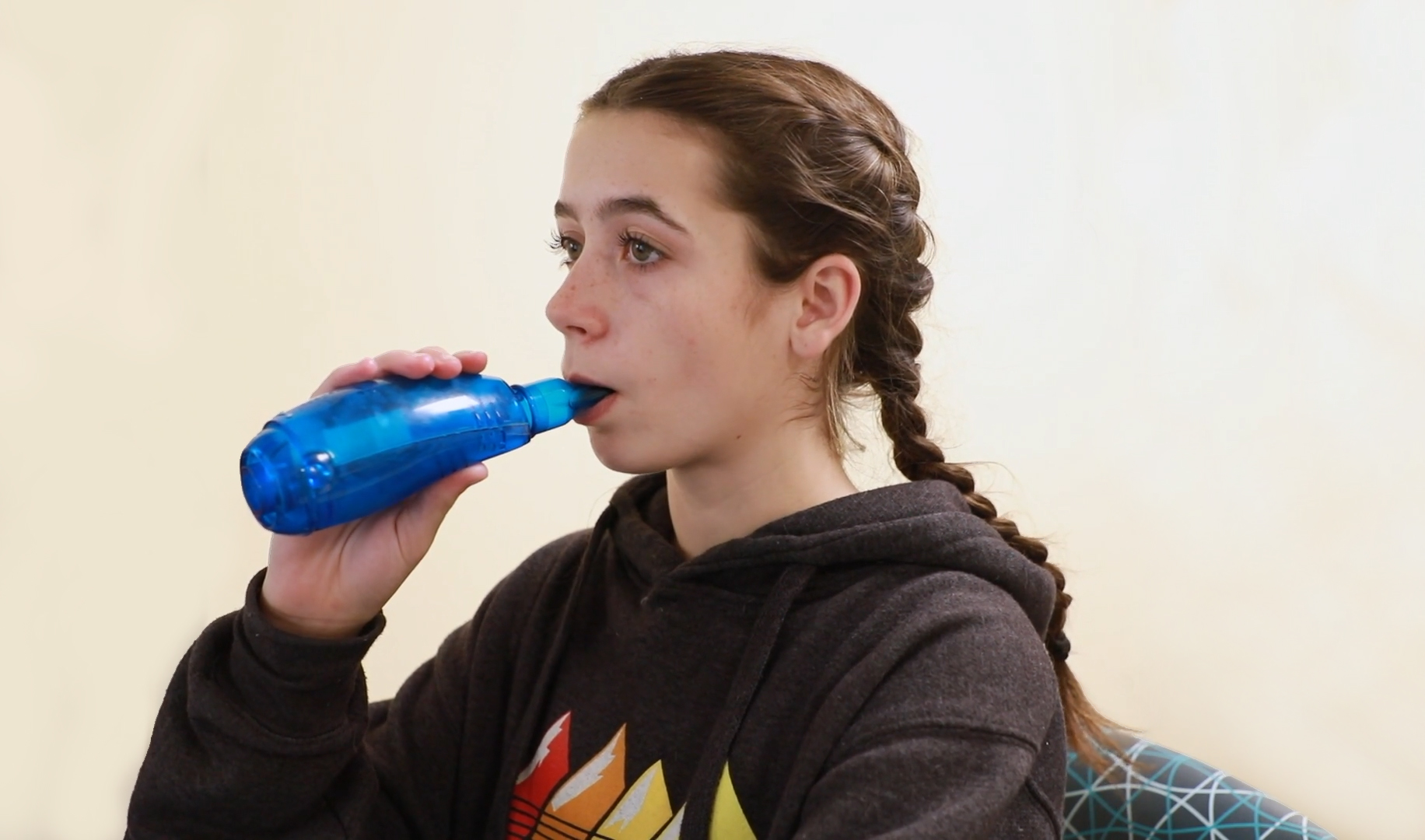The health-care team
You will see many different health-care professionals during your cystic fibrosis (CF) clinic visits. Generally, you will be seen in the CF clinic every three months. This section will help you understand the role each person plays in your health care and how they can help you.
Respirologist (lung doctor)
The respirologist or lung doctor will see you every three months to assess your respiratory or lung health. The doctor will make sense of all the information gathered from your tests and procedures and use this information to make decisions and recommendations about your treatment. If you have questions about your condition or treatment, your doctor is a great person to ask. Also, if you would like your doctor to consider certain things when deciding about treatment, let them know.
Other doctors
Sometimes, you may need to see other specialty doctors like the gastroenterologist for long-term digestive issues or the endocrinologist if there are issues with your blood sugar levels.
Nurse
A nurse is a registered and specially trained member of your health-care team who will help coordinate your health care both in the clinic and at home. The clinic nurse (RN) will see you at each clinic visit and perform assessments. They are probably the health-care professional you will contact and communicate with the most and spend the most time with. The nurse is your main contact when you have questions about your CF-related health. They will work with you and the rest of your health-care team to support you and they will help you with any treatment decisions that you need to make.
Nurses are knowledgeable, caring, compassionate and fun people! You can ask your nurses any questions about your cystic fibrosis and you can talk to your nurses about any of your concerns, fears or just everyday life stuff. Make sure you know how to contact your CF clinic nurse. Write down their phone number and/or email address in your notebook or save it on your phone.
Nurse practitioner
The nurse practitioner (NP) is a registered nurse with extra education and training. Because of this, they are able to assess patients, order and interpret test results, communicate diagnoses to patients, prescribe medications and perform specific procedures.
A nurse practitioner provides nursing care and does some of the same work as a doctor. For example, you might see one for your check-ups. They work closely with you and the rest of your health-care team to help make a treatment plan that works for you. They can also help you connect with other health-care professionals you might need to see.
Physiotherapist
Physiotherapy is a way of treating some of the side effects of diseases or weaknesses in the body through physical remedies such as movement and special exercises. A person who practices physiotherapy is called a physiotherapist (PT).
The PT helps you with your airway clearance, inhaled therapies, posture and physical exercise to keep your lungs and body healthy. The PT will teach you breathing exercises and physical activity strategies to keep your bones, muscles and lungs strong so that you can maintain an active lifestyle by setting goals with you.
Dietitian
A dietitian is an expert in food and nutrition. Dietitians help people stay healthy by giving expert advice about food choices. A dietitian will help you to follow a healthy diet and maintain a healthy weight.
Social worker
A social worker is someone who is specially trained to look at a person’s or a family’s social and emotional needs, and who will work with them to find solutions to problems that will help them feel less worried or anxious. The social worker may talk with you about some of your feelings about having CF and how it may affect different areas of your life such as family and friendships, school and getting help with your mental health.
Pharmacist
A pharmacist is an expert on medications. They work in community pharmacies (such as drug stores where you go to fill prescriptions), as well as health-care settings including hospitals. They are specially trained to understand:
- how medications work to fight disease
- potential side effects and how to manage them
- which medications can be taken together safely and which combinations should be avoided
- how to use and store medications safely
An important part of a pharmacist’s job is to share their expert knowledge with the health-care team, patients and families.
The pharmacist will ask you what medications you are on and will talk to you about how to take your medications along with their side effects and how you can manage them.
Information co-ordinator
This is the member of your health-care team who will usually arrange all your clinic appointments and assessment tests.
Psychologist
Psychology is the study of how the mind works and how people behave. Professionals who study psychology are called psychologists. They use many different techniques to help you understand and change your thoughts and behaviour so that you can cope with the stress and challenges you face.
You may meet with a psychologist to help you understand your strengths and weaknesses when it comes to your learning and behaviour and how you handle your emotions. After gathering some information about you, the psychologist can recommend different methods and strategies to help you succeed at school and in everyday life.
Pulmonary function technician
A pulmonary function technician carries out the tests to check how well your lungs are functioning. They will work with your doctor to assess your test results.
Exercise physiologist
Exercise physiologists carry out exercise testing to understand how well your heart, lungs and muscles work together during exercise. From these tests, they can work with your CF team to suggest areas where you can get stronger.

